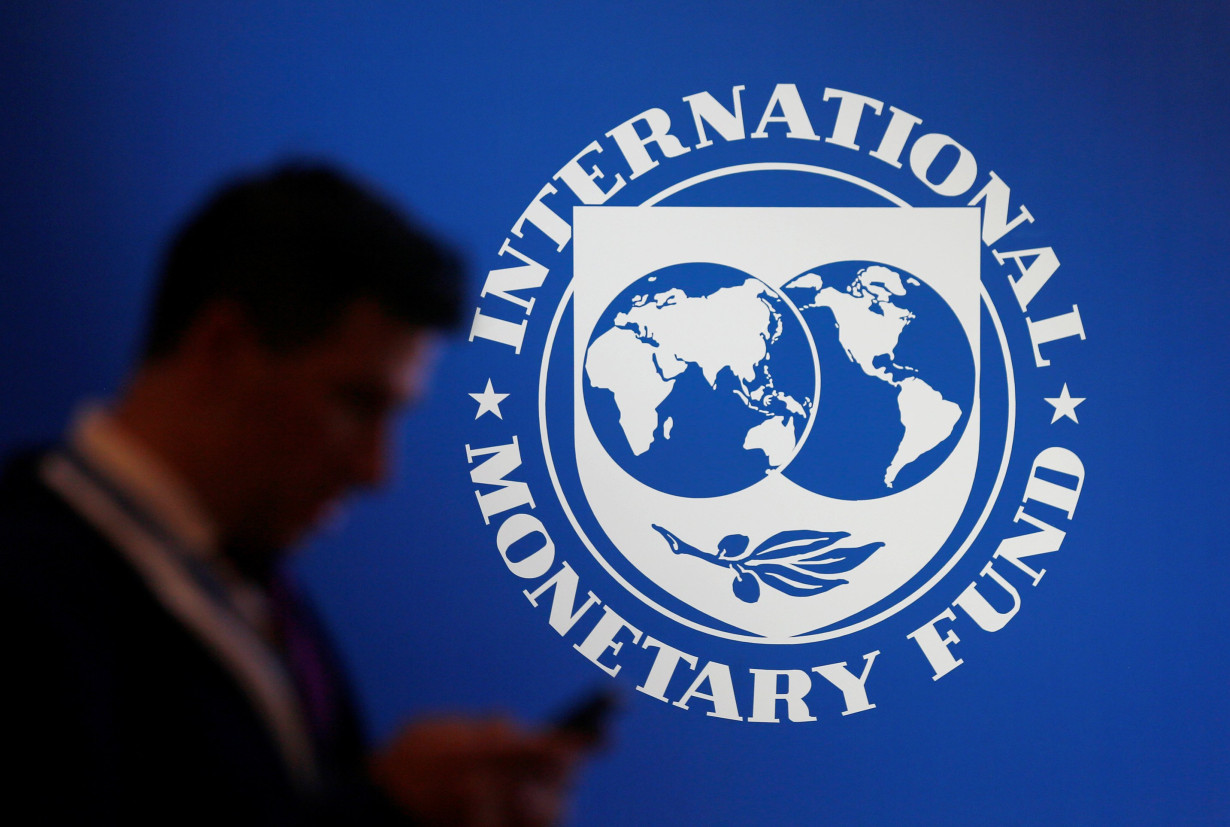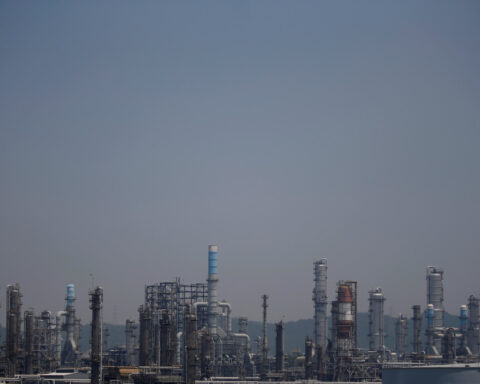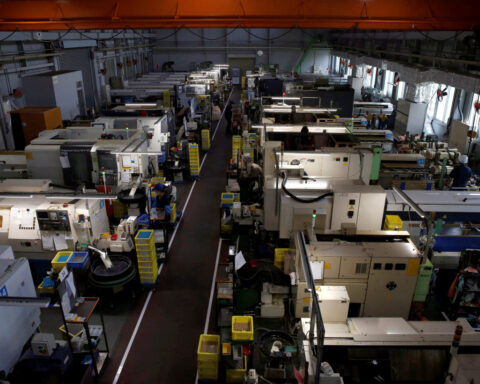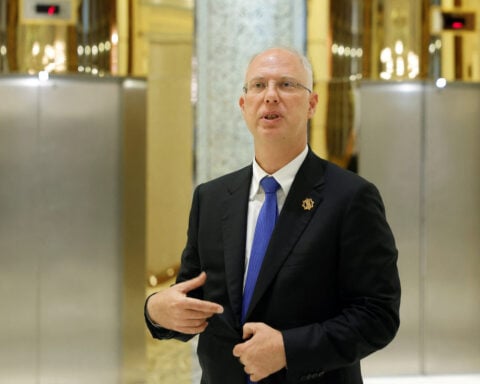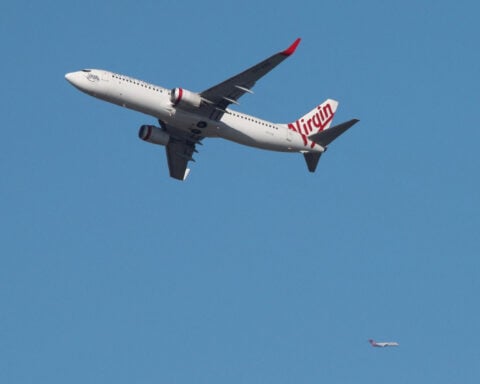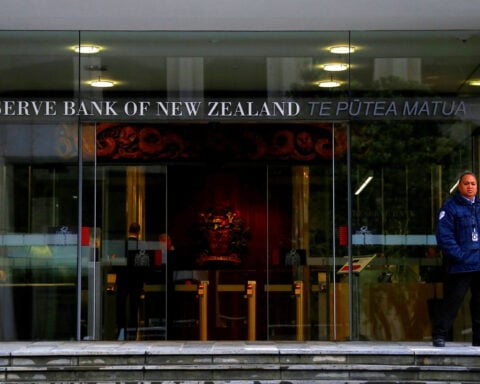By David Lawder
WASHINGTON (Reuters) -The International Monetary Fund is continuing to assess the impact of President Donald Trump's tariff plans, including his new 25% auto tariffs, but the global lender's baseline forecasts do not envision a U.S. recession, IMF spokesperson Julie Kozack said on Thursday.
Kozack, asked about Trump's tariff plans during a regular IMF press briefing, said the duties imposed on goods from Canada and Mexico, if sustained, would have a "significant adverse effect" on those countries' economic outlooks, but declined to provide specific details. The IMF is continuing to assess the impacts of Trump's various tariff announcements on other regions, she said.
Many of these assessments will be incorporated into the IMF's next World Economic Outlook forecasts, due to be released in late April, and Kozack said the report will clearly state which actions are included in the assessments of economic growth and inflation.
Some of Trump's tariffs could be delayed until later, including for auto parts duties that could take until May 3 to be activated.
Kozack said the U.S. economy had been continuing to outperform expectations at the time of the IMF's January WEO update, remaining "remarkably strong" throughout a monetary tightening cycle that ended last year.
Three days before Trump took office on January 20, the IMF raised its 2025 U.S. growth forecast to 2.7% from the 2.2% envisioned in October, based on a strong labor market and accelerating investment.
"Since then, of course, there have been many developments," Kozack said. "Large policy shifts have been announced, and the incoming data is signaling a slowdown in economic activity from the very strong pace in 2024 ... recession is not part of our baseline" for the U.S.
AGILE INFLATION FIGHTING
Kozack did not address questions on the inflationary impact of Trump's tariffs, but said the IMF has seen greater-than-expected persistence in inflation, which will impact the WEO's growth and inflation projections.
"And what this means for central bank and policymakers is, of course, that agile and proactive monetary policy is going to be needed to ensure that inflation expectations remain well-anchored."
Regarding Russia's inflation outlook, Kozack said that despite January projections that Russian inflation would ease, it remains high and well above the Russian central bank's 4% target, reflecting a tight labor market and strong wage growth.
"Currently, we are not seeing signs of an easing of inflation" in Russia, she said.
(Reporting by David Lawder and Rodrigo Campos; Editing by Chizu Nomiyama and Paul Simao)

 Trump has begun another trade war. Here's a timeline of how we got here
Trump has begun another trade war. Here's a timeline of how we got here
 Canada's leader laments lost friendship with US in town that sheltered stranded Americans after 9/11
Canada's leader laments lost friendship with US in town that sheltered stranded Americans after 9/11
 Chinese EV giant BYD's fourth-quarter profit leaps 73%
Chinese EV giant BYD's fourth-quarter profit leaps 73%
 You're an American in another land? Prepare to talk about the why and how of Trump 2.0
You're an American in another land? Prepare to talk about the why and how of Trump 2.0
 Chalk talk: Star power, top teams and No. 5 seeds headline the women's March Madness Sweet 16
Chalk talk: Star power, top teams and No. 5 seeds headline the women's March Madness Sweet 16
 Purdue returns to Sweet 16 with 76-62 win over McNeese in March Madness
Purdue returns to Sweet 16 with 76-62 win over McNeese in March Madness
